The Expert System for Reliability in Aeronautics (ESRA) is a powerful tool designed for reliability analysis and in-service configuration management. Leveraging the FRACAS (Failure Reporting, Analysis, and Corrective Action System) methodology, ESRA enables the systematic collection, documentation, and analysis of system and component failures. This closed-loop feedback process ensures effective corrective actions, enhancing overall reliability and performance.
Main goals
- Update the “as maintained” configuration of produced aircraft starting from the “as delivered” ones
- Creation of common data repository for failures / incidents management, analysis and corrective actions
- Perform reliability statistics on aircraft and component level
- Verify the effectiveness of preventive maintenance tasks and support interval escalations
- Determine which modification has a better payback → product improvement
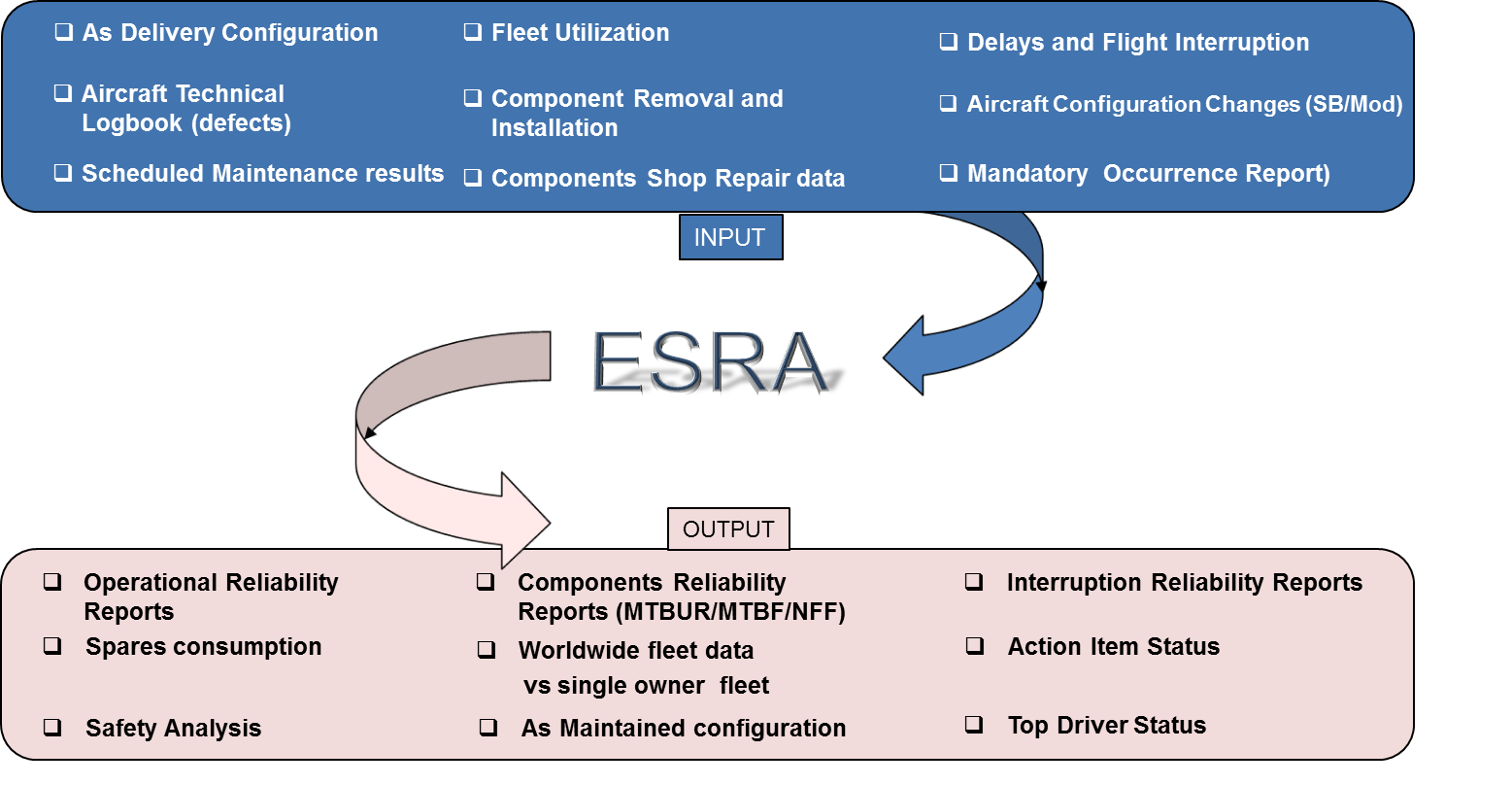
Main Inputs and Outputs of Expert System for Reliability in Aeronautics
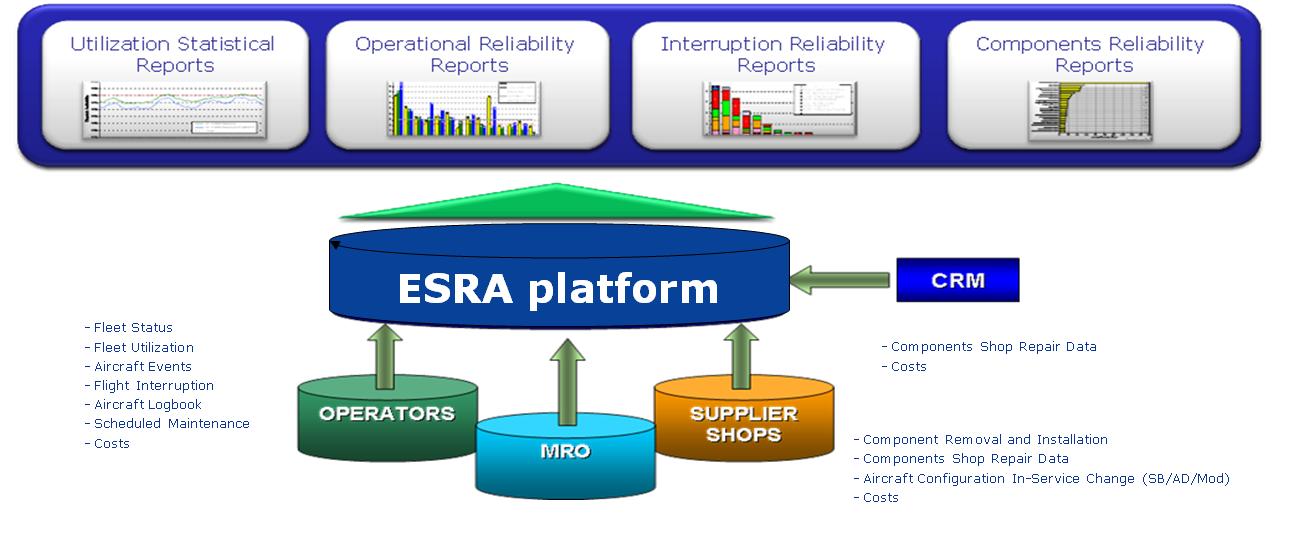
Data and Reports in Expert System for Reliability in Aeronautics
Functionalities
• Determine fleet utilization rates in terms of FH, FC and operative days
• Support service engineering on troubleshooting activities allowing dedicated (case by case) comparison among data related to failures occurrences
• Allow easy retrieval of historical failures and corrective actions taken
• Determine failure mode rates for each component managed in the system
• Manage historical reliability metrics for each component (P/N) managed in the system (i.e. MTBUR, MTBF)
• Trace fleet and aircraft dispatch reliabilities
• Assist the suppliers to retrieve all data pertaining to their product from maintenance data
• Monitor the effectiveness of preventive maintenance task elaborated by manufacturer and support MRB Report revisions
• Trace the fleet configuration status “as Maintained” in terms of embodiment of SB, AD, STC and major repairs
• Perform trend analysis
• Provide customized reports complaint with Aviation Authorities requirements
• Support investigation on root cause as a part of Root Cause Analysis (RCA)
• Trace corrective actions and verify their effectiveness
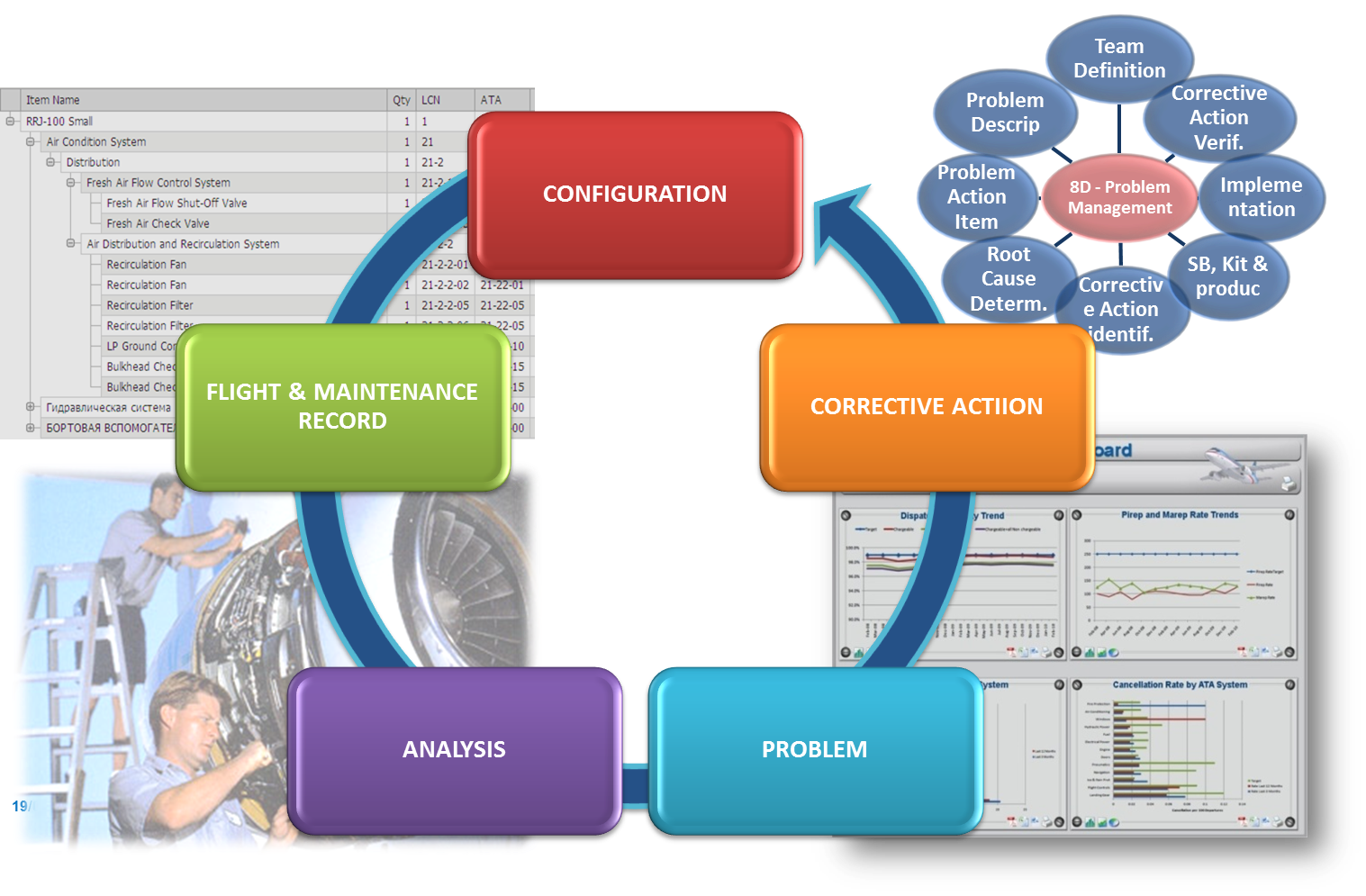
Work Flow in Expert System for Reliability in Aeronautics
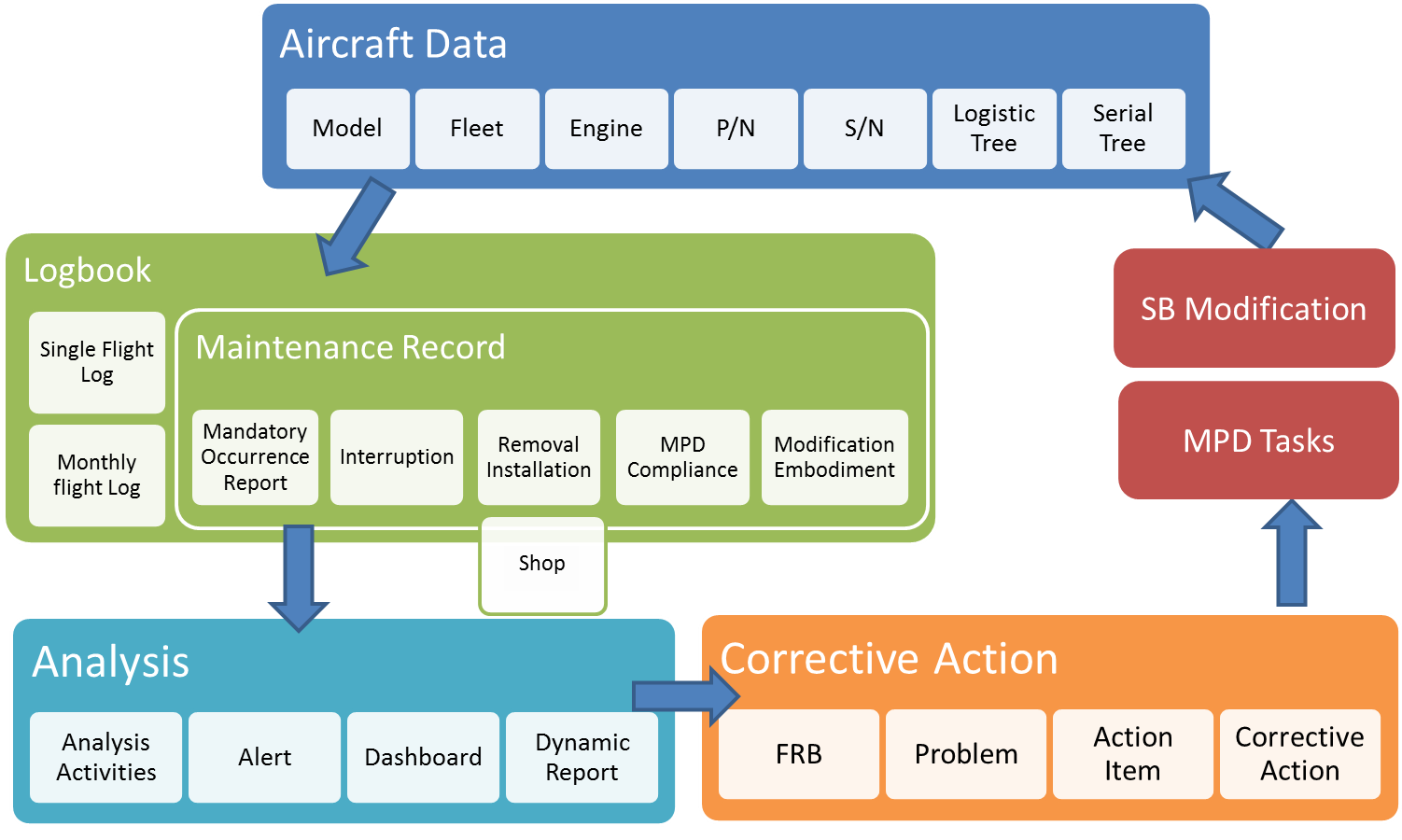
Module Map in Expert System for Reliability in Aeronautics
Key Features of ESRA
1. In-Service Configuration Management: Management of aircraft “as maintained” configuration starting from the “as delivered” one (hierarchical list of installed LRU’s, concessions/waivers and mod. status)
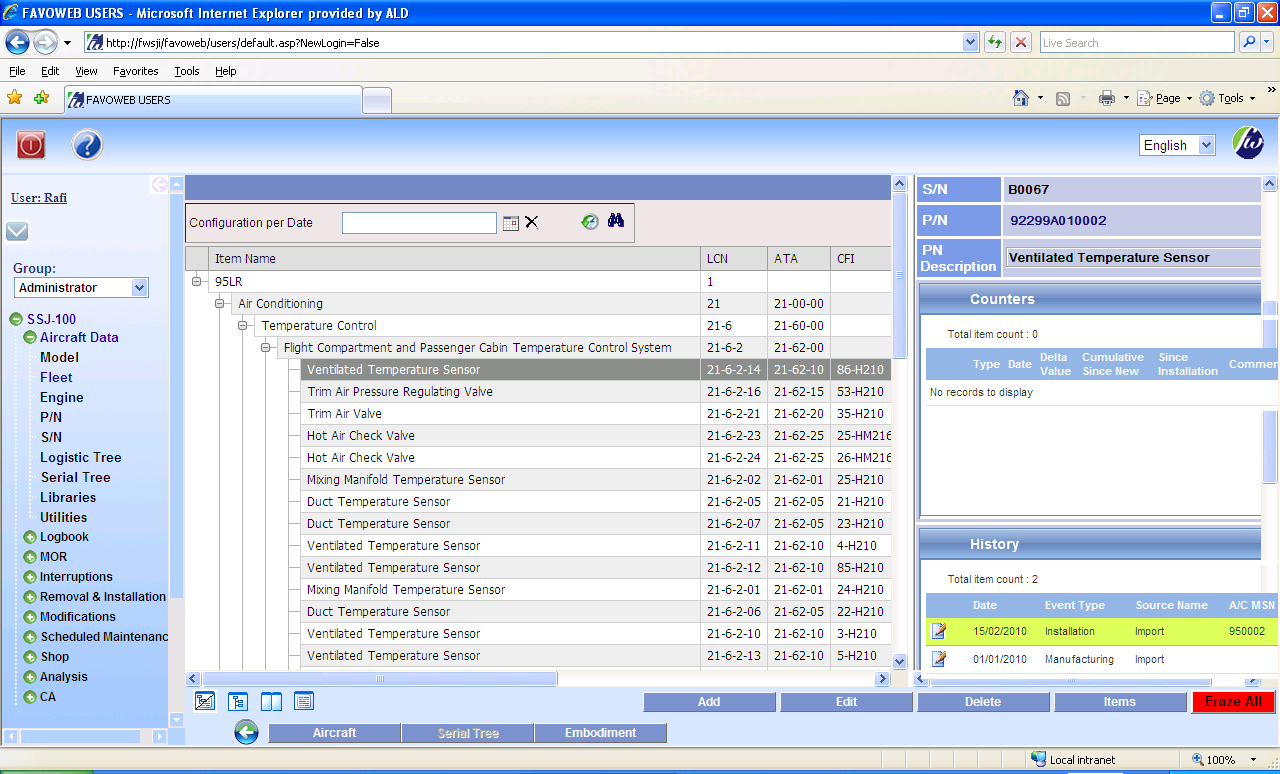
In-Service Configuration Management in Expert System for Reliability in Aeronautics
2. Importation Process: Pre-screening, Validation, and Post Processing of incoming files. No extra-works requirement data import: ESRA features a customizable importation tool, which shall perform data Pre-screening and Validation of the Raw data. Post-Processing is used to standardize the raw data prior the final importation into the system
3. Customized Workflow concept: customized workflow management at all level of the system
4. Automatic Alert: automatic alerting and warning tools
5. Link between configurations and failures: direct link between aircraft configuration and failure events
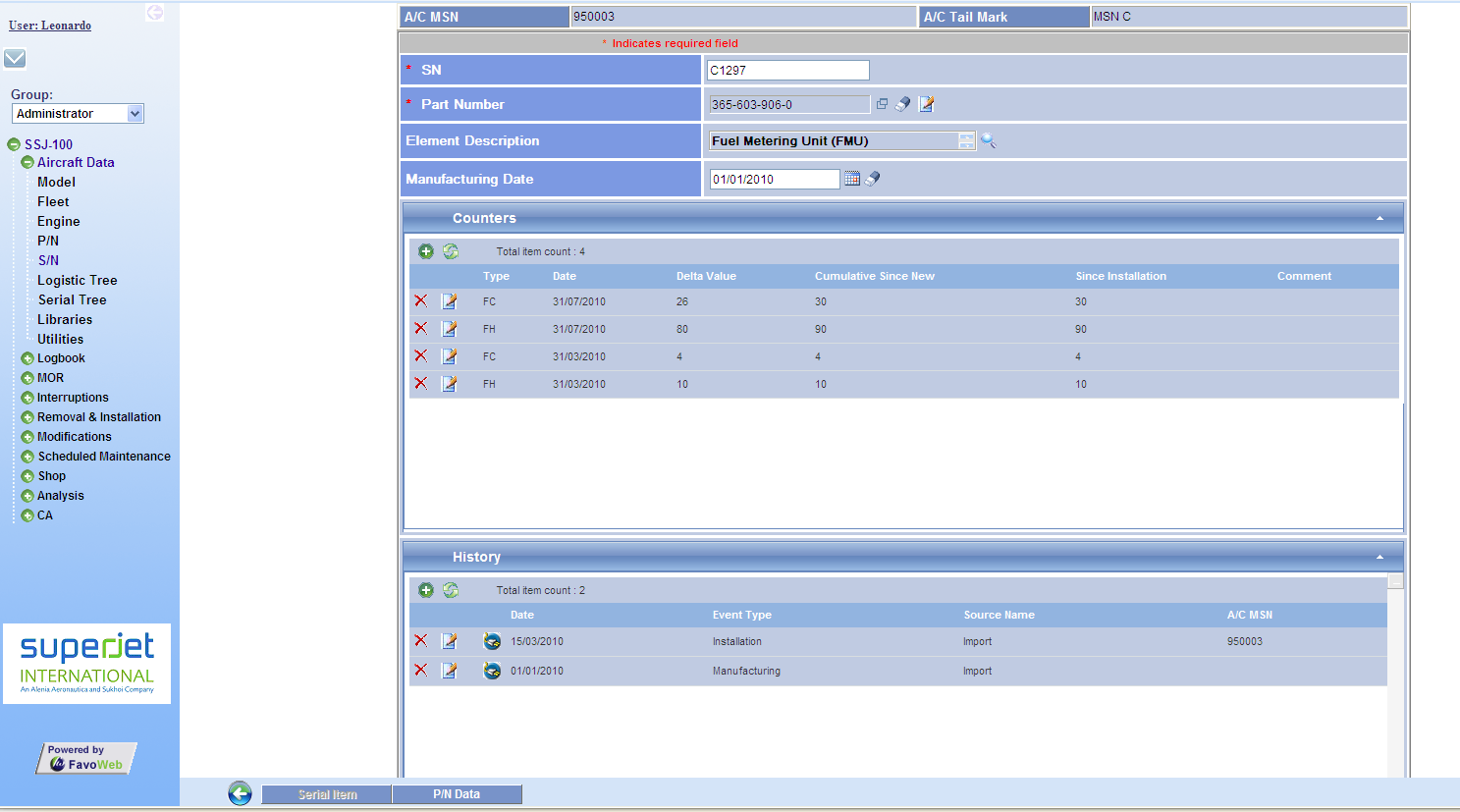
Link between Aircraft Configuration and Failure Events in Expert System for Reliability in Aeronautics
6. 8D (Eight Disciplines) approach: Corrective action based on 8D Problem Solving Process
8D (Eight Disciplines) is a problem-solving methodology for product and process improvement. It is structured into eight disciplines, emphasizing team synergy.
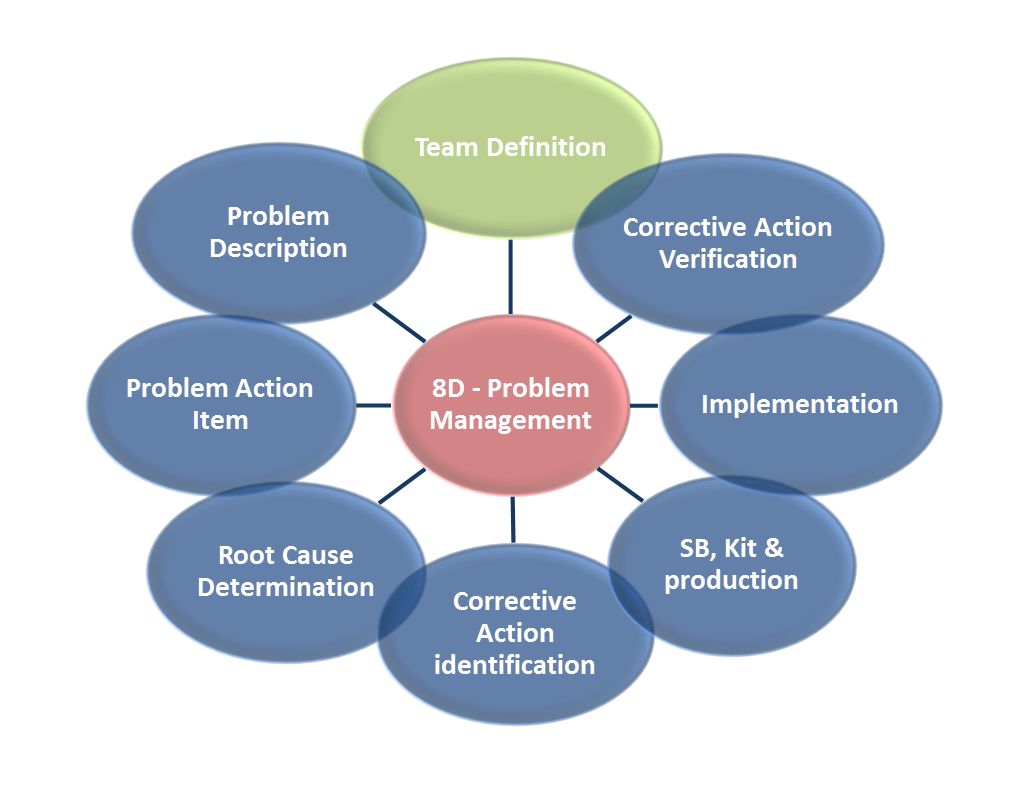
8D Problem Solving Process
7. Customizable Dashboards
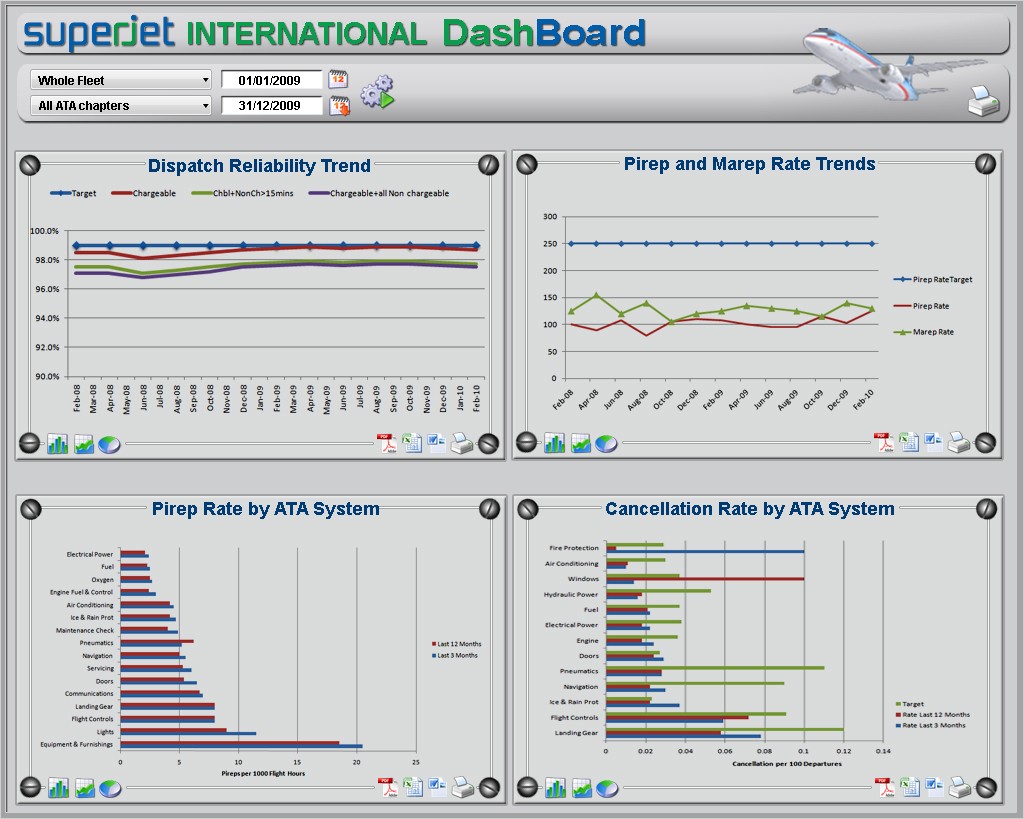
Customizable Dashboard in Expert System for Reliability in Aeronautics
Benefits for Operators
- Cost Control
- Trace aircraft and system Dispatch Reliabilities assisting operators to achieve higher levels
- Verify the effectiveness of preventive maintenance tasks and support interval escalations
- Determine components actual reliability data (MTBUR, MTBF)
- Determine which modification has a better payback
- Comparison of own fleet performance and worldwide fleet through a dedicated user friendly web access
- No extra-works requirement for report production: ESRA features a customizable importation tool which shall perform data pre-screening and validation
See also:
